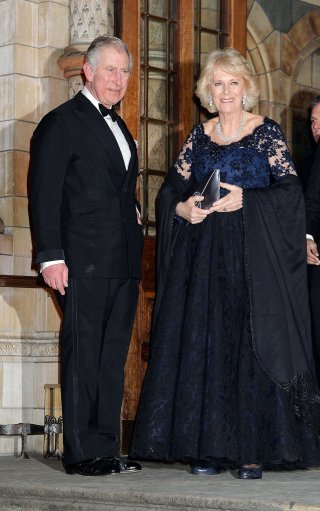
HIS MAJESTY THE KING WILL HOST A RECEPTION AND JOIN A CEREMONY COMMEMORATING THE 50TH ANNIVERSARY OF THE ARRIVAL OF BRITISH ASIANS FROM UGANDA TO THE UNITED KINGDOM AT BUCKINGHAM PALACE
Wednesday, 2nd November 2022
His Majesty The King will host a reception and join a ceremony commemorating the 50th anniversary of the Resettlement of British Asians from Uganda in the United Kingdom. The ceremony will be presented by former journalists Jon Snow and Jonathan Dimbleby.
His Majesty will host a reception in the State Dining Room, where guests will include representatives from charities and organisations such as the Royal Voluntary Service, British Red Cross and Oxfam, who supported the resettlement of Ugandan-Asian refugees 50 years ago.
The King will then join the main ceremony in The Ballroom. The ceremony will provide an opportunity to reunite many of the refugees and volunteers whilst offering thanks to over sixty voluntary organisations which mobilised to provide timely humanitarian assistance.
Journalists Jon Snow and Jonathan Dimbleby will present the ceremony, supported by speakers including Lord Gadhia, Baroness Shriti Vadera, Baroness Virginia Bottomley, Sanjeev Bhaskar and Archbishop Lord Sentamu.
A performance by the Westend Gospel Choir will conclude the programme.
Five hundred people will be attending the event, most of which have direct connections to, or are families of British Asians who arrived in the UK from Uganda 50 years ago.
Broadcasters Jonathan Dimbleby and Jon Snow were at the forefront of covering this global media story. Jonathan Dimbleby reported from Uganda for ITV in 1972. Jon Snow interviewed former President of Uganda, Idi Amin on multiple occasions and lived and taught English in Uganda as a student in 1967 with Voluntary Service Overseas. Both will share their experiences during this period of history.
The event is being organised by the British Asian Trust, which was founded in 2007, by the (then) Prince of Wales and a group of British Asian business leaders, to tackle widespread poverty, inequality and injustice in South Asia.
Support has been provided by British Ugandan Asians at 50, an initiative supported by the National Lottery Heritage Fund, and various charitable organisations who were involved in the resettlement.
On 4 August 1972, some 60,000 Ugandan Asians were given 90 days’ notice to leave the country by former Ugandan President General Idi Amin. Almost half of these people arrived and settled in the UK. The first evacuation flight organised by the UK government landed at Stansted Airport on 18 September 1972, carrying 193 passengers.
Sixteen temporary resettlement and reception camps were set up around the country with 63 voluntary sector organisations mobilised to provide humanitarian support for the evacuees. Thousands of private individuals also volunteered, providing warm clothes, activities for children, English language teaching and other support. A specially formed body, the Uganda Resettlement Board, was established by the Home Office to co-ordinate these efforts.
Five decades later, British Ugandan Asians have excelled in many fields from business and finance to politics, science, and the arts, integrating successfully and contributing to British society in multiple ways.
In 1997, a service of thanksgiving was held at Westminster Abbey to mark the 25th anniversary and was attended by the former Prime Minister, Sir Edward Heath.
A letter from His Majesty, then Prince of Wales featured in the order of service. It read:
“No Briton of my generation can forget the shock of Idi Amin’s arbitrary and cruel expulsion from Uganda of its Asian community in 1972. I can well imagine the agonised feelings of despair of those suddenly forced to pack up and go.
“But by marking the anniversary of this forced exodus with a service of thanksgiving, you are today commemorating not an expulsion but an arrival; not a trauma, but a magnificent recovery. Twenty-five years on, the Ugandan Asian Community in Britain have proved to be one of our great successes and a tremendous asset to this country, to which you fled. I dearly hope that Britain has proved to be a welcome haven to most of you, providing a stimulating and supportive environment in which to rebuild families and fortunes, to put down new roots and bring up a new generation.
“I very much regret that I cannot be with you in person today, but I can assure you that I am with you in spirit. As you give thanks in Westminster Abbey, I too give thanks – that Britain had the wisdom and generosity to offer a home to the Ugandan Asians in 1972, and that you have so thrived and contributed so much since. I send you my heartfelt wishes on this important day.”









